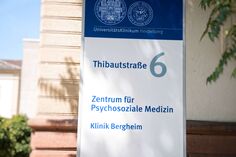Executive control deficit in depression: event-related potentials in a Go/Nogo task.
Kaiser S, Unger J, Kiefer M, Markela J, Mundt C, Weisbrod M.
Growing evidence suggests an impairment of executive control functions in depression. The aim of this study was to investigate whether depressive patients show a specific impairment of executive control in a response inhibition task and to investigate its neurophysiological correlates using event-related potentials. We analyzed data from 16 patients with unipolar depression and 16 healthy controls using an auditory Go/Nogo task. High resolution event-related potentials (ERPs) were recorded. Depressive patients performed similar to controls in the Go task, but worse in the Nogo task, which required response inhibition. ERPs revealed the neurophysiological correlate of this deficit. Both groups showed the same voltage pattern in the Go task. However, in the Nogo task depressive patients showed a reduction of an early fronto-temporal positivity in the N2 time window, which was associated with response inhibition in healthy subjects. This effect could not be explained by increased task difficulty in the Nogo task. There was no difference between groups in later stages of processing as indexed by the P3 complex. Therefore, the findings suggest a specific deficit in response inhibition, which requires executive control. This deficit is thought to reflect dysfunctional activation of the network subserving executive control during an early stage of cortical processing.




